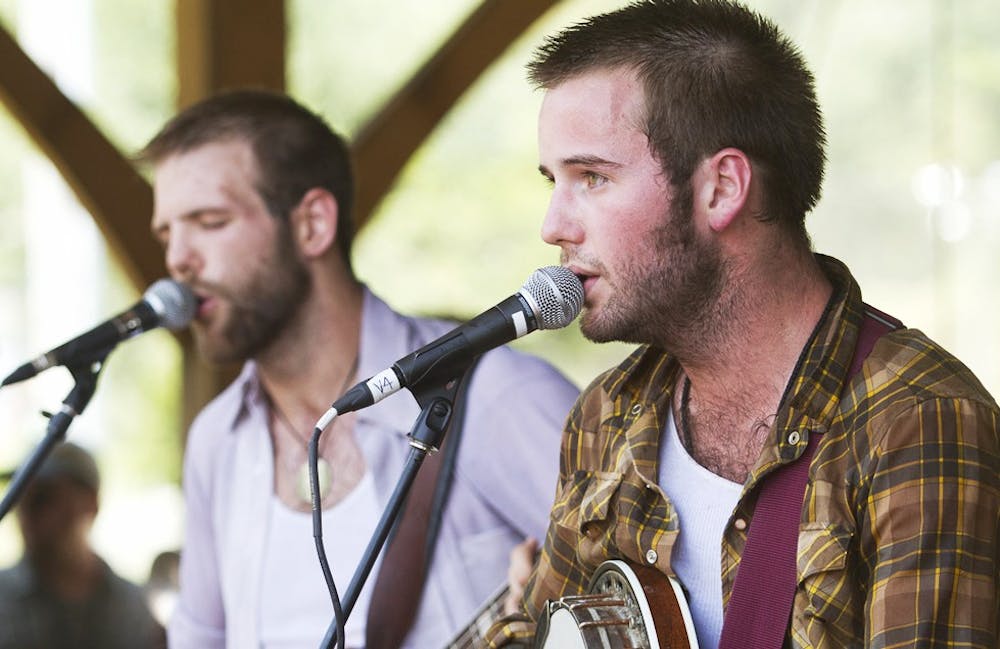Stephen Murray, banjo player, guitarist and vocalist for Holy Ghost Tent Revival is playing with a few bandmates to support Mike Quinn at this weekend’s Shakori Hills Grassroots Festival of Music & Dance. He recently talked to Diversions Editor Joseph Chapman about the group’s recent shake-up in its lineup, and its plans for the festival.
DIVERSIONS: What’s the news with HGTR’s lineup?
STEPHEN MURRAY: Well, our bass player of four years, who was kind of there from the beginning in some aspects, decided to move on with the old life and move to Wisconsin and marry a lady and whatnot. So he did that, we played our last show with him last weekend.
And yeah, that was kind of a stick in the spoke. We were growing rapidly and at a really exciting pace, and there’s nothing more frustrating then having to deal with a lineup change. It was really not a good time. But you know, we haven’t hit a horrible rut, we just had our keyboard player move to the bass. Which, you know, is the perfect substitution since he knows all the songs, he just has to learn them on bass.
So, we were excited for that move. And then we just found out (Sunday) that our keyboard player is going to be leaving soon, too. So, we have a little dramatic fixing we need to do. This will probably be the first printed thing ever about it, but we’re going to soon start actively looking for two new members.
DIVE: Who will be playing with you at the Shakori Hills festival?
SM: We’ve been trying to advertise it as us backing up our really good friend, Mike Quinn. He’s from Scranton, Penn., and he’s an extremely influential songwriter to me personally. He was in a band called And The Moneynotes.
He came down with us last spring at Shakori and we primarily played Holy Ghost music and then in the middle of our sets, we would play five or six of his songs. Because where he’s at right now in his life, he’s recording albums and he’s struggling too to find permanent band members — I’m not sure if he even wants any, he just wants to find people who will go on tours with him.
His passion is to get his music into people’s ears and have people know his songs. With our bass player leaving, we kind of took ourselves out of playing so many shows this fall. And also we weren’t chosen to play Shakori in the fall, so we decided we would try and get some more of our fans, because we feel like if you like us, you’ll definitely like him.



